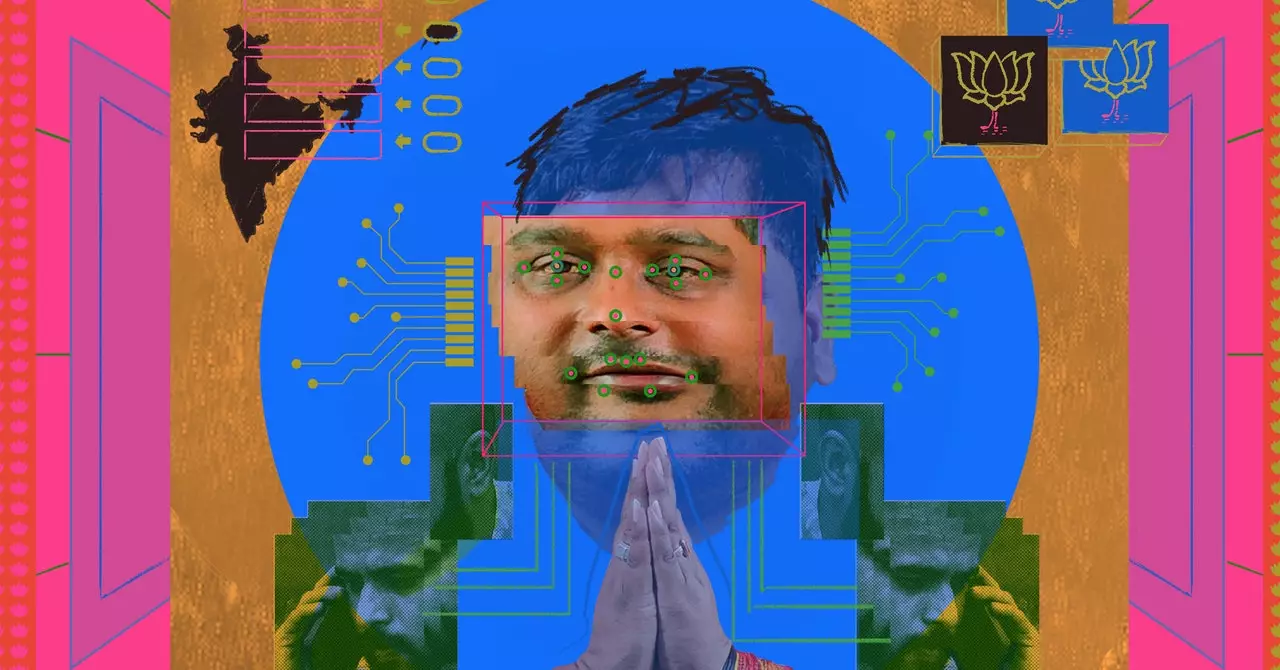In the bustling city of Ajmer, Rajasthan, local politician Shakti Singh Rathore found himself being introduced to the world of deepfakes on a scorching April afternoon. This encounter marked a new chapter in Indian politics as Rathore sat down in front of a greenscreen to shoot a short video, nervous yet intrigued.
Deepfakes, the phenomenon of using AI to manipulate audio and video content to create realistic yet entirely fake media, have been making waves in the political landscape of India. With the country’s general election looming large, politicians have seized the opportunity to harness the power of deepfakes for voter outreach.
While the concept of deepfakes often conjures images of misinformation and disinformation, Indian politicians have taken a different approach. They are using AI to navigate the country’s diverse linguistic landscape and deliver personalized messages to voters across the nation.
Sanctioned deepfakes have become a lucrative business in India, with estimates suggesting a staggering $60 million opportunity in this field. Companies like Polymath Synthetic Media Solutions, led by Divyendra Singh Jadoun, have emerged to cater to the political class, offering deepfake services for a price.
Jadoun, a prominent figure in the deepfake industry, has worked on numerous AI campaigns for politicians across India. From creating digital avatars to resurrecting deceased politicians for endorsements, the use of deepfakes in political campaigns has reached unprecedented levels.
For politicians like Rathore, deepfakes have revolutionized the way they engage with voters. Instead of traditional methods like door-to-door campaigning, AI-generated videos and calls now reach voters directly on their phones, delivering personalized messages tailored to their interests.
While deepfakes offer a novel way to reach voters, ethical concerns loom large over their use in political campaigns. The potential for misinformation and manipulation raises questions about the long-term impact of AI-generated content on the democratic process.
As India navigates the realm of deepfakes in politics, the implications of this technology remain both fascinating and concerning. While it’s clear that AI has the power to revolutionize voter outreach, the ethical dilemmas it presents cannot be ignored. The future of Indian politics may very well be shaped by the delicate balance between innovation and integrity in the age of deepfakes.


Leave a Reply